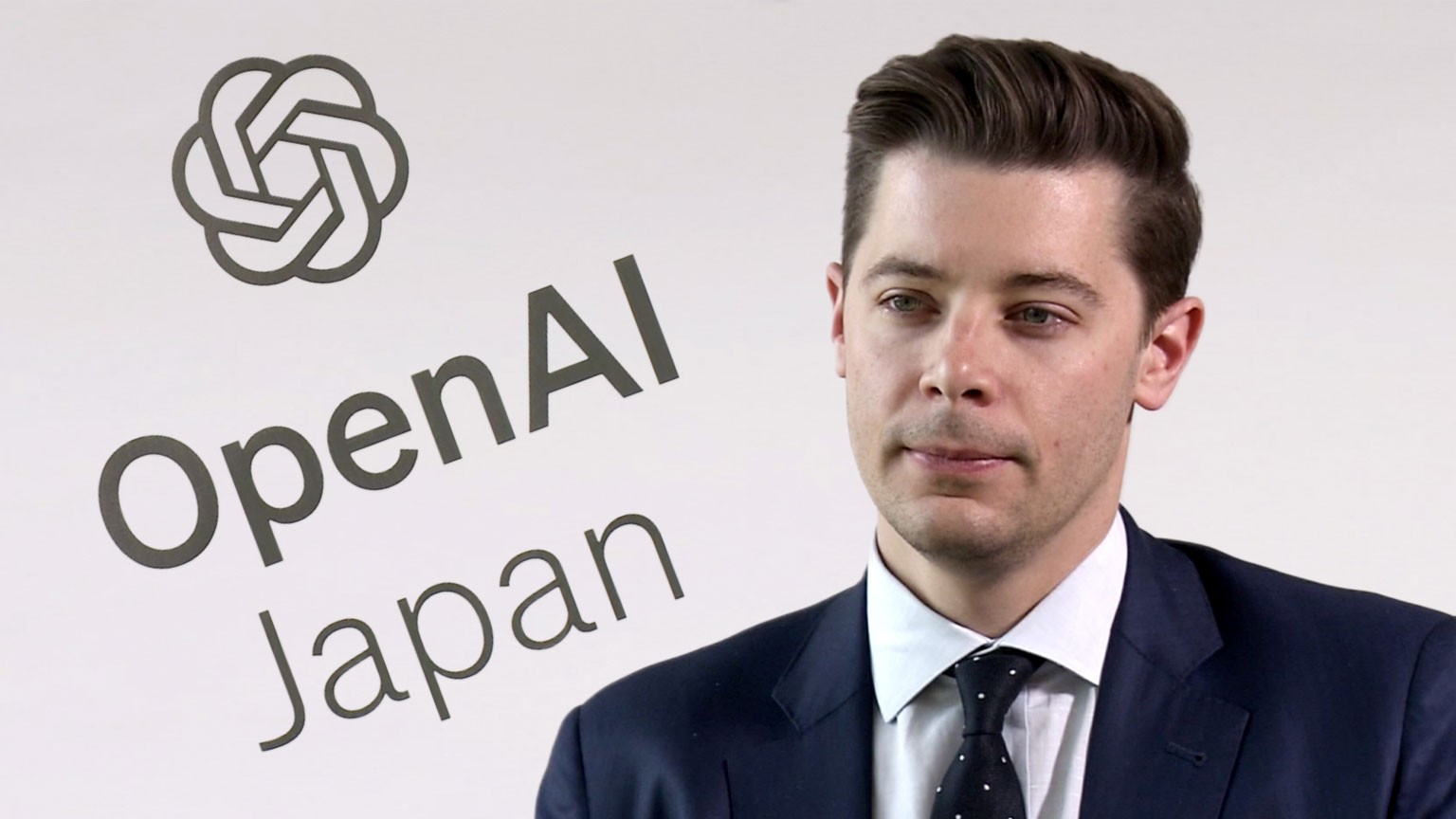OpenAI released ChatGPT in November 2022, sparking the rapid growth of generative AI around the world. The San-Francisco-based startup has offices in Britain and Ireland.
The company is now ready to reinforce its business in Japan through its new base in Tokyo. Brad Lightcap, OpenAI's Chief Operating Officer, says setting up the office in Japan is a natural step.
"We think there's an incredible opportunity for this technology here. It has an amazing enabling capability. It's able to make people more productive and more efficient. It's able to, we think, in the long term, really reshape how the economy will work in ways that are creating a massive consumer value, massive economic value," Lightcap said in an exclusive interview with NHK in Tokyo on April 15.
"And so we think Japan has a huge opportunity to be a leader in this regard in this transformation. And we're here and ready to work with everyone to make that possible," he said.

The company says it will develop a new generative AI model specializing in Japanese language and culture.
"The model should have improved understanding of the Japanese language," Lightcap explains. "Our goal over time is to really have models that very deeply understand Japanese business, Japanese culture, Japanese society, and to have these kinds of general intelligence to use any application in Japan."
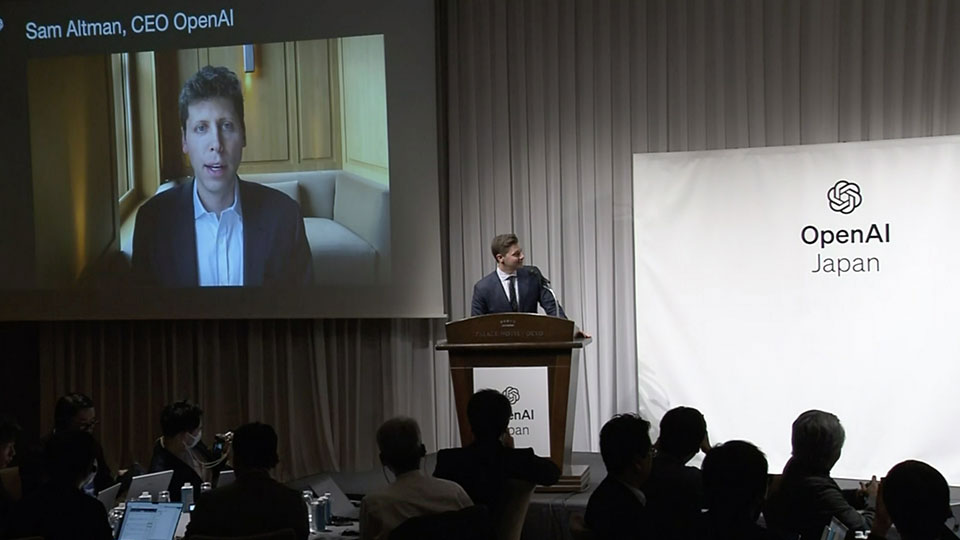
The firm is also expected to assist the Japanese government in setting regulations for generative AI systems.
"Our mission is to create broad benefits using AI that's built safely and deployed responsibly. And so we really feel this kinship with Japan, with the people of Japan, with businesses here in Japan, to continue to further that legacy of being able to really be leaders and pioneers in adoption of cutting-edge technology, in this case, AI. And so it felt very natural, a very natural partnership to us."
Microsoft to pour billions into Japan AI business
It's not only OpenAl that's investing heavily to boost their generative AI business in Japan.
Microsoft recently announced its largest-ever investment in Japan of 2.9 billion dollars, or about 440 billion yen, over the next two years.
"This is not only the most important and largest investment in Microsoft's 46-year history in Japan," Microsoft President Brad Smith stressed in an online interview with NHK on April 8.
"It's far and away the biggest step we have ever taken to support Japan's future, and we're very focused on what we see as the opportunities and needs of Japan for the second quarter of the 21st century."
The plans include expanding facilities in Tokyo and Osaka to increase data center capacity crucial for generative AI. Graphics processing units, or advanced AI semiconductors, will be introduced.

The company also plans to set up a research base in Tokyo. The aim is to help improve productivity and address Japan's socioeconomic issues through AI and robotics.
There will also be a program to help 3 million people become AI-tech engineers over the next 3 years.
"Because what we're seeing is that Japan is accelerating quickly in adopting AI, but it has a very substantial skilling gap," Smith told NHK. "So Japan is right now moving faster to use AI, especially in companies and businesses than it is to equip the population more broadly with AI skills."
The tech giant also aims to strengthen cooperation with the Japanese government to counter cyber security attacks.
On April 9, Prime Minister Kishida Fumio told Smith during their meeting in the United States that he wants to tap into the promise of AI and welcomed Microsoft's plan to boost investment in Japan.
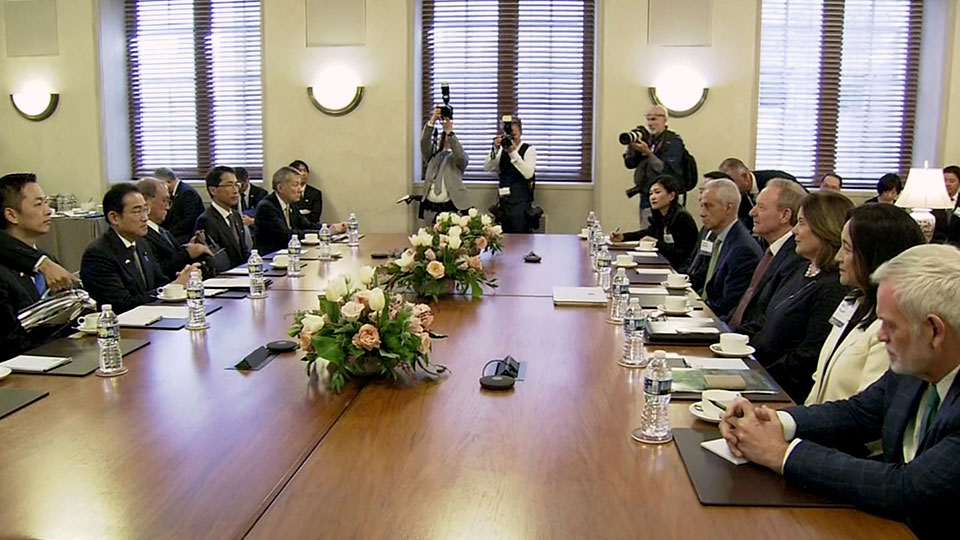
AI market in Japan heating up
The race to develop generative AI in Japan is heating up.
Amazon Web Services is planning to spend more than 2.2 trillion yen in Japan over the five-year period to 2027. Google also earlier announced an investment of about 100 billion yen in the four years to 2024.
While the US tech firms are expanding their presence in Japan as they view it as a lucrative market, Japanese companies are taking a slightly different approach.
They are placing priority on versatile, adaptable systems — which cater to various industries and fields — and do not require large data centers.
In March, Japanese telecom giant NTT and lT and electronics specialist NEC launched generative AI systems for corporate services they developed internally.
KDDI, another Japanese telecom, has turned a startup that develops generative AI into its subsidiary, hoping to access the corporate and local government markets.
Japanese online services giant Rakuten group and Softbank are also in the game, preparing to develop and commercialize their AI systems.
AI safety research centers launched in Japan
On April 1, the Research and Development Center for Large Language Models (LLMC) — a new base for promoting research and development of domestic AI with high transparency and reliability — was launched in Tokyo.
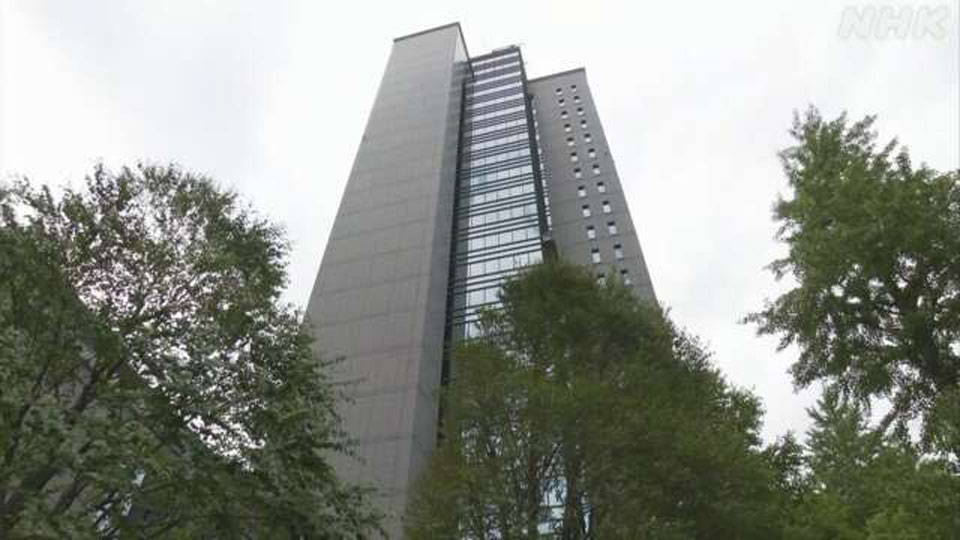
One of the challenges researchers and legal experts at the center will tackle is the "black box problem" — the lack of transparency and interpretability of AI algorithms.
The LLMC, established by the National Institute of Informatics, will conduct advanced research on such issues to secure transparency and reliability of generative AI.
Kurohashi Sadao, the head of the National Institute of Informatics, who became the first head of the LLMC, says creating and analyzing AI models as well as advancing research on transparency and reliability "on their own" is crucial.
"That will enhance the country's level of research and development and accelerate industrialization of the technology," Kurohashi says.
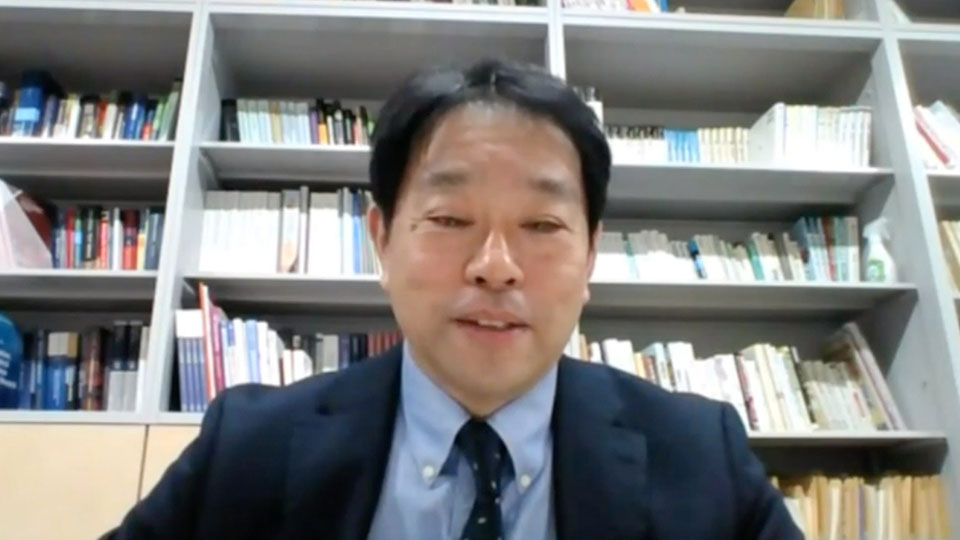
Kurohashi also stressed the importance of securing safety of the AI technology in order for society to accept it.
"AI has a good aspect, but it can be misused. If someone asks how to make bombs, Al models that are not trained may give answers to such questions. There are also concerns that AI will encourage bias such as discrimination and prejudice," he says.
In February, the Japanese government launched a national research institute to study the safety of the technology.
The AI Safety Institute will work with related organizations overseas to study technologies to deal with fake information and draw up safety evaluation standards.
